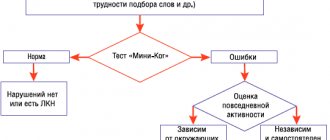This person loves to dress shockingly: if he wears a hat, then with ostrich feathers; if shoes, then on a 25-centimeter platform; if it’s a jacket, then it must have rhinestones. He speaks pretentiously and floridly. He gestures actively and rolls his eyes theatrically. His whole appearance carries one single message: “I am special, look at me!” This is a hysterical type of personality who cannot live a day without the attention and admiration of others.
general characteristics
Hysteroid is a type of personality accentuation, characterized by an irrepressible and uncontrollable desire to constantly be in the center of attention. Their main goal is universal admiration and worship. In order to receive praise, they can take unprecedented measures and shocking actions that shock the public. If no one shows interest, they become very upset and may become depressed and even get sick. In socionics, this is a pronounced demonstrative psychotype, working exclusively for the public.
Physiology:
- weak nervous system;
- poor tolerance to any stress (physical, emotional, intellectual);
- poor health, likes to get sick (to attract attention).
Leading features:
- demonstrativeness, deliberate mannerism;
- the desire to constantly and at any cost be in the center of attention;
- thirst for admiration, veneration, adoration, worship.
The entire description of the character of a hysterical personality type is contained in one phrase: “Idolize me!” Negative features:
- tendency to intrigue;
- idle talk, ability to perform verbal balancing act;
- hypocrisy;
- cockiness, feigned belligerence, readiness to rush into a fight at any moment, starts up half a turn;
- recklessness, carelessness, recklessness - lack of plans for the future;
- reckless risk;
- boasting mixed with lies about non-existent successes;
- selfishness;
- heightened self-esteem;
- love of social life and empty entertainment;
- touchiness.
The “weak link” of a hysterical personality type is a blow to self-esteem and the exposure of fantasies about oneself.
Positive features:
- perseverance and perseverance in achieving goals;
- initiative, enterprise, quick generation of good work ideas;
- communication skills;
- resourcefulness, intelligence;
- activity, energy;
- excellent organizational skills, leadership qualities;
- autonomy, independence;
- pronounced individualism, originality, originality;
- an increased level of empathy, the ability to deeply understand another person, however, this knowledge is used purely for the benefit of the hysteroid, to satisfy some of his whims, to achieve his goals.
The hysterical personality type burns out very quickly. After each burst of energy and outburst, he feels completely exhausted and exhausted, takes a break and goes to rest in silence and solitude. Distinctive appearance features:
- well-groomed, impeccable appearance;
- love for fancy styles and acidic tones in clothes;
- unusual hairstyles;
- bright makeup;
- pretentiousness;
- in old age - the desire to “look younger”;
- demonstrating with all their appearance that they are not like everyone else;
- light, graceful gait “from the hip”;
- lively, emotional facial expressions;
- active gestures;
- smooth movements;
- good, refined figure.
Before Freud, hysterics in psychology were considered as personality types characteristic exclusively of the female sex. However, after the father of psychoanalysis personally admitted that he was prone to the traits inherent in this accentuation, this postulate was revised.
Features of the modern hysterical woman
The modern hysterical character differs in many ways from that which was described, for example, by F.M. Dostoevsky or Z. Freud. Nastasya Filippovna, as she is recreated by the writer, has sexual attractiveness, provokes erotic feelings towards her, but it is difficult for her to turn into an ordinary mistress. Sexual release is difficult for her. Freud began his practice working with hysterical women. He immediately discovered that they all had a repressed sensuality. Of course, today these character traits remain. But culture has left its mark on the traits of this type. Therefore, other properties have appeared that characterize the sexual culture of our time. As is known from classical psychoanalysis, oral, anal and masochistic characters are distinguished by weak self-awareness and an incomplete sense of their “I”. The basis of self-perception is created by the movement of the energy pendulum. It is limited and not fixed in the carriers of this character in brain and genital functioning. Such people are sometimes called impulsive, as opposed to blocking affect types. This is, in particular, the hysterical character.
What is its grain? O. Fenichel writes: “When considering the mechanisms of hysteria, it should be borne in mind that its features reflect conflicts between intense fear of sexuality and no less intense, but suppressed sexual desire.” How does rejection of sensuality, fear of it, arise? We return again to childhood experiences.
What do we mean when we say that a girl loves her father? If the child has reached the genital stage of development, then the girl’s feelings for her father are sexually charged. The fact is that every feeling has two components - romantic and sexual. In a child, both of these component feelings are not split. It is only an adult, to whom these components are separated, who realizes that many women or men can like him, but this does not mean at all that these people should become sexual partners... The feeling of a girl is different. She truly, sexually and romantically (and together), loves her father. But the father cannot adequately respond to the girl’s affection, which is why subconsciously she feels rejected and insulted in her experiences. This psychological conflict turns out to be the source of the hysterical character. A person with a hysterical character is accustomed to unconsciously sexualizing all relationships: sensual energy overwhelms her and seeks a way out. Therefore, her behavior from the outside seems strange and provocative. One of my students, a bearer of a hysterical character, wore a short skirt that no longer corresponded to her age, a tight sweater, and her makeup was provocative. The lips were highlighted with bright paint. They always seemed damply attractive, inviting. The student walked with a light dancing gait. When she languidly asked which classroom the classes would be in, it seemed as if she was inviting us to a purely intimate meeting. Here's another example. The voting results are read out at the Academic Council, where the head of the chemistry department is elected. It turns out that there were three “no” votes on the ballot. The bearer of a hysterical character says to herself excitedly, reverently: “That’s how I worry everyone, that’s how I worry everyone...” Another type would hardly benefit from such a reaction. And this is a woman addressing a man on an everyday occasion. But she leaned over him, lowered her bust onto him and whispered passionately in his ear. From the outside, one might think that the “lovers” have forgotten and are demonstrating their feelings in public. If you draw the attention of a hysterical person to the strangeness of her behavior, she will be very surprised. After all, this is not done intentionally, but unconsciously. That is why Alexander Lowen writes: “A hysterical character is a person who tends to sexualize all non-sexual relationships, is characterized by suggestibility, irrational emotional outbursts, chaotic, dramatized and theatrical behavior and even deception, up to the extreme form of hysterical fantasies.” According to W. Reich, the most pronounced feature of the hysterical character is clearly sexual behavior combined with specific bodily mobility, which has a distinct shade of sexuality. The connection between female hysteria and sexuality has been known for a long time. Women with such a structure are easy to notice by the hidden or overt coquetry of their gait, gaze and speech. The hysterical personality is undermined by incestuous attachment. And again V. Reich: “The hysterical character is characterized by a strong and unsatisfied sexual desire, which is restrained by genital anxiety; she feels the constant presence of danger, which corresponds to her infantile fears. The initial infantile sexual desire is later utilized in order to experience, as before, the nature and magnitude of the threatening dangers. Lines from a patient's diary. “Before entering college, I was at the crossroads of life and I’m practically sure that I took the wrong path, since there were all the prerequisites for this. There was complete chaos in my head, it seemed that I was going to a dead end, complete atrophy of the love and tenderness that I experience now. I even showed callousness towards the people closest to me. I just now felt it, as if I had been a “sleeping beauty” for ten years and suddenly woke up, began to feel something, smell flowers, notice stars, a real feeling of joy appeared. I even want to dream about this feeling from deep childhood...” A masochist seeks an analyst to become free. He identifies himself with his motives. And what does a carrier of a hysterical character feel? She realizes that something is out of her control. She wants to regain this ability and at the same time can understand that this is neurotic. The patient writes. “I walked to the metro station and cried all the way, sometimes quietly, sometimes loudly. I couldn’t understand the reason and therefore couldn’t stop the tears. Everything somehow shook up, collapsed at the same time - self-pity, and dislike, and a feeling of guilt towards everyone at once. “Controlled emotions” kept coming up. Why did consciousness constantly return to this? At some point I thought that I couldn’t be loved because I was insipid. And suddenly, like a flash, insight. My whole life is under control, my every thought, every feeling, emotion. And only love is beyond my control. That's what these tears are from... So, I fell in love (20 years of calm and now!) I couldn't get this feeling under control. But I managed to successfully destroy this person’s feeling for me...” Alexander Lowen asks the question: how does a hysterical character consciously identify himself with resistance and control, and a masosist with motivation and freedom of expression? Let us recall that the hysterical character is a genital structure, while the oral and masochistic character are pregenital. Since, Lowen explains, genitality is firmly established, the body has an adult organization of energy. The energetic pendulum, the movement of which represents the principle of reality and creates the basis of self-perception, is “anchored” at both ends of the body - the brain and genitals. As long as these “two anchors” are maintained, the body is able to regulate the balance between the amount of generated and discharged energy. And as long as the hysterical character maintains this balance, he is able to avoid anxiety, maintain control and contact with reality. Can this neurotic regulatory mechanism fail? Undoubtedly. For example, control may be too effective. My patient reports how she constantly regulates her thoughts and feelings. Her mind even flashes: “controlled feelings.” If the flow of energy increases but the discharge remains the same, anxiety arises. It happens that a girl accumulates sensual energy, but there is no real opportunity to spend it. Here are lines from another diary. “I want to inform you that I broke up with my friend. It happened by itself; we haven’t communicated for a month now. He became somewhat apathetic. I almost don’t regret that the breakup happened. If he needs my help, I will always help him and support him. It's a shame that I'm losing my loved ones, this is the second person who leaves me. Both of them, when parting with me, said that they treated me like a sister. It seems to me that this happens because subconsciously I am looking for the dad I lost in childhood. He died when we were 14 years old. I don’t remember him well, but I always want to be like him - in everything. I behave differently with my young people. I can be a woman-lover, but basically I have a need to be taken care of, protected, treated like a little girl: stroked on the head, pressed to the chest, pitied, carefully guided me. Young people want to see me as a woman, but I lisp like a little girl...” When Freud began his therapeutic practice, flirting was in fashion. The dominant culture tried to suppress sensuality. Sexuality found its expression in coquetry. A certain flirting practice developed. An entry in an album, a bold compliment, a story told with subtext, fiery eyes expressing passion.” Now this is not typical for Russian culture. Of course, you can occasionally find advertisements in Moskovsky Komsomolets like “Dating is not for marriage. Flirting..." External manifestations of a hysterical nature have become different under the influence of changes in modern sexual morality. But has the structure of libido changed? No, she has remained unchanged... A carrier of a hysterical character fears not only sexual relations. Her fear also has an emotional component. She fears strong emotional involvement. Feeling sensual impulses, her genitals give consent, but her heart refuses. As soon as the soul sends strong feelings to the genital apparatus, anxiety is born in it. Therefore, usually only a small amount of energy is discharged. Love turns out to be divided into two poles: tenderness and sensuality. As long as incestuous attachment remains in a woman’s subconscious, this splitting is irreparable... When young people just start dating, immediate release turns out to be impossible, and normal love anxiety arises. But this anxiety can turn out to be pathological if factors of suppression of sensuality come into play. Any noticeable decrease in energy discharge while maintaining its previous amount gives rise to anxiety: Freud, even in his early works, emphasized that insufficient pleasure received during sexual intercourse gives rise to anxiety. If suddenly the amount of energy increases (suppose a hobby or love is born), then anxiety is inevitable. It turns into a somatic symptom. So the conflict no longer emerges at the mental level. Anxiety neurosis, according to Freud, is a somatic duplicate of hysteria. An attack of hysteria is an explosive phenomenon. But this is not just a specific tension that is found in an “oral addict” or a masochist. Rigidity of a hysterical nature covers all bodily processes. The body is literally “grabbed” by the shell. The sexual desire of the carrier of a hysterical nature is blocked by fear, which is caused by the childhood sexuality initially rejected by the fathers. But can she detect anger? This feeling is diminished by real desire. Anger cannot be released until the sexual desire for the father is suppressed. Suppressed anger and pride block access to repressed desire. This creates an obstacle to getting closer to a man. Sometimes the hysterical woman becomes submissive. But this cannot be considered as a manifestation of love. A woman unconsciously seeks to shift responsibility for sexual intercourse to a man. Beneath the ostentatious submissiveness lies an aggressive attitude, which opens up the possibility of sexual release. If a man pursues a woman, then this helps her reduce the suffering from the resentment that is associated with her unrecognized and rejected sexuality. If a woman gives herself to a man, then she uses this act as the basis for revenge on all men. Thus, if sexual submission restores the Oedipal relationship, then it is now perceived by the bearer of the hysterical character as satisfactory. Freud, describing the hysterical character, drew attention to the complex mixture of romantic adoration and sexual lust characteristic of this psychological type. Revealing the secrets of childhood sexuality, the Austrian psychiatrist showed that the girl, the future bearer of hysterical behavior, experiences both worship and attraction to her father. Hence her adult drama: she seduces men, but does not give herself to them. She is a vamp woman, and it is difficult for her to betray her father and choose another man. However, the sexual revolution changed a lot. Paradoxically, today, when sex has become accessible, the hysterical woman fears most of all reverent worship. She sadly instructs her excited knight, who hinted at her divinity: “Listen, just let’s do without it... Without flowers and confessions. We had such a good time in bed, and you took it and ruined everything... Eh, boring!” The sexual revolution, which thundered in the West and reached us, did its good work: it stirred up business people keen on accumulating money, cold beauties brought up by Victorian asceticism, pale young men with burning eyes. Europe shook itself off from banal prejudices, from empty compliments: “How I would like to be a gentle scarf hugging your lily neck!” The revolution showed what a huge role sexuality plays in people's lives. But perhaps today the sexual revolution has crossed its limits. American researcher Jane Rainwater rightly notes: today, what can be called neurotic is not the woman who is ashamed of sex, but the one who is in despair that she does not hold the record for the number of orgasms experienced. And now psychotherapists have to instill: “don’t be afraid to experience shame, excitement, trepidation and even fear... This is normal... When a person is not afraid of anything, he is not always sexual.” Fear of sensuality is inherent not only in the hysterical character. In an “oral” person, for example, the opposition between sexual desire and fear is more pronounced. A masochist can generally fall into a state of panic under the influence of sexual impulses. The desires of a masochist are quite conscious, but restrained and suppressed. In other words, he is not aware that he is holding back his sexual feelings. Masochistic squeezing, twisting and pushing of libidinal energy, designed to achieve sexual release, is not appreciated by the masochist himself as a way to overcome resistance. In a hysterical woman, sexual desires are suppressed, but they are largely unconscious. A person of such a structure will be surprised if you point out the sexual meaning of his behavior.
Source: Institute of Psychoanalysis and Social Management
Compatibility of different accentuations
What is the compatibility of a hysteroid and:
- ...hysteroid
These two personalities have a lot to talk about: social gossip, new fashion, trends, the latest collections of Armani and Gucci. However, such communication is very superficial and does not oblige you to anything. It’s difficult for them as a couple, because everyone is able to think and care only about themselves. After the veil of love falls in three months, they will begin to wither due to lack of attention and look for it on the side.
- ...epileptoid
There is only one wealthy couple here: a hysterical woman and an epileptoid man. The wife is a spectacular social beauty, of whom her husband is rightfully proud as his own decoration. He will surround her with luxury and care. She will slowly turn into a manipulator and enjoy his attention. She can go to the left, and if she is caught, she will theatrically wring her hands and demonstratively break dishes. Most often, the epileptoid forgives the betrayal, but after that he takes the hysteroid with a tight grip.
- ...paranoid
Paranoid is a personality type with a strong nervous system. Therefore, a hysterical person can fall in love with him, will walk with his mouth open, listen to every word and worship him almost like a deity. However, he is too fickle, and as soon as a new luminary, broadcasting the truth, looms on the horizon, the hysteroid may move over to him. From the point of view of marriage, a couple of woman-p and man-i will be wealthy. The wife will take on the role of manager in the family and will help her husband achieve career heights. If the gender is the opposite, the superficial and narrow-minded beauty will shake from the rigidity and steadfastness of her husband and secretly cheat on him.
- ...schizoid
These two personality types are radically opposed to form a pair both in communication and in marriage. They have no common themes. They are too different even in appearance: one is stylish and fashionable, and the second is unkempt and unkempt. For this they despise each other. If a spark of love suddenly flashes, the flighty and cheating hysteroid will deeply wound the sensitive schizoid and make him suffer greatly. Relationships are possible only in one case - if it is a marriage of convenience.
- ...hyperthyma
The beginning of their relationship is like a real fairy tale. The hyperthymic personality type knows how to look after beautifully, carries the glamorous hysterical in his arms and blows off specks of dust from him. Walks on a boat, a romantic dinner by candlelight, expensive gifts - all this suits both, until... Until the first one gets tired and immerses himself in another project of his life - and this can be not only a new partner, but also a career, a hobby or something... something else. He loses interest in his former toy, who cannot stand it and, offended, leaves, breaking all the mirrors and dishes in the house.
- ...emotive
Such couples often meet in life and at first they are very happy. Emotive is sincerely in love, surrounds the hysterical personality with care and warmth. And that’s all she needs. Melting away from each other, they are blissful and even get married. However, over time, the emotive begins to understand the superficiality and frivolity of the hysteroid. He becomes offended. He either endures this situation and remains unhappy for the rest of his life, or gets divorced.
- …cycloid
Cycloids are deep people who do not understand and do not accept the posturing and theatricality of the hysteroid. Even if such a couple develops, then until the first depression or hysteria, the cyclothymic. Then a scandal and even a fight cannot be avoided.
The main problems of hysterical personalities
The main problem of people with a histrionic character is increased emotionality, which leads to a sharp negative or joyful reaction. Personal behavior is characterized by sharp laughter, tears, anger, tenderness and other feelings. Unfortunately, they only appear if the situation affects the egocentric personality. When it comes to the problems (successes) of another person, the “hysteroid” remains indifferent to them.
The list of problems of this personality type includes:
- lack of desire to overcome difficulties;
- inability to perform routine work;
- relationships in society;
- striving for the ideal.
The main problems of hysterical personalities
Self-centered people, as a rule, do not know how to solve life's difficulties. Often they encounter a problem, realize that they will not be able to overcome it quickly, and immediately lose interest in it. The same can be said about monotonous duties that depress “hysterics” and cause negative emotions in them. Too frequent problems and routine activities often lead this type of personality to prolonged depression, loss of strength, and apathy. This fact is explained by the protective reaction of the body (in particular, the nervous system) to stress or overexertion.
The problem of interpersonal relationships deserves special attention. The personality type in question does not have tact, restraint and modesty. On the contrary, he is too demonstrative, uncompromising, demanding, and this is a direct path to conflict. In a team, such people can become either a recognized leader or an outcast whose company will be avoided. Family life rarely resembles an idyll, more likely due to the constant nagging of the “hysteroid” than due to the shortcomings of the partner. Egocentric people a priori have few friends, because they do not accept the slightest contradiction in their views on life and other people.
Kinds
In psychology, the hysterical personality type is represented by several types. Therefore, there is a special classification of this character accentuation:
- paranoid hysteroid - fixated on his fame, for which he is ready to move mountains, often achieves popularity;
- hyperthymic - all the traits inherent in the hysterical personality type are manifested as clearly as possible; rude and impudent;
- anxious - too fixated on his appearance and universal adoration, worries and trembles over every failure;
- epileptoid - hot-tempered and irritable, often uses quarrels and even fights to attract the attention of others;
- emotive - experiencing any emotion too much, often ends up with a mental personality disorder;
- schizoid - stubborn, shocking, bright, unusual.
In psychology, there is also a typology of types of thinking by psychotherapist A. Kurpatov, according to which a person of this character accentuation is a hysterical reflector. He perceives the world around him reflexively, through how others treat him.
Features of the disorder
Hysteria is a rather dangerous mental illness, which is often characterized by suicidal tendencies.
The hysterical personality type in women manifests itself in the form of overly expressed sexuality, in some cases – nymphomania, theatricality and attempts to attract attention to one’s person. The same is observed in male patients
In children, the hysterical personality type is not diagnosed, since this disease manifests itself only at the end of adolescence or in adulthood. A child is an unformed personality, so it is incorrect to talk about disorders of something that is only improving and changing. Children are prone to hysterics and some behavioral deviations, and these problems should certainly be corrected by a specialist psychologist, but they have nothing to do with the hysterical type of disorder.
Reasons for formation
Depending on the age stage, the factors influencing the formation of the hysteroid personality type vary greatly.
- In early childhood
In childhood, upbringing plays an important role. When a child goes through a 3-year-old crisis, he often has tantrums. If parents learn to respond to them correctly, the tantrums will subside after a while and will not recur. If the situation is aggravated, this will develop into a stable accentuation of character and will contribute to the formation of a hysterical personality type.
- At school age
If at school teachers or classmates begin to highlight any of the child’s talents, even if it is in its infancy, a hysterical personality type may well develop. The habit of worship will last a lifetime.
- During adolescence
Here everything can go exactly the opposite. If parents and teachers constantly belittle a teenager's personal dignity and force him to hide his talents and sexuality, he will demonstrate freedom of expression out of spite. Over time, this sometimes goes away, but not for everyone. Someone is forever stuck in this challenge posed to society.
- In adults
Even as an adult, a person can become hysterical. This can be influenced by external factors: for example, unexpected success and sudden drop in popularity. Sometimes the impetus is internal complexes and reserves: severe stress forces you to radically reconsider your views and values, to turn from a gray mouse into a bright peacock. Less commonly, the provocateur is physiology: traumatic brain injury, mental personality disorder, disturbances in the functioning of the nervous system, etc.
Symptoms of Histrionic Personality Disorder
This disease in the scientific literature is also called histrionic or hysterical personality disorder . You can also find a name such as demonstrative personality syndrome . Hysterical personality disorder refers to psychopathic diseases characterized by the individual’s need for attention, pretentious behavior, and unstable self-esteem. People suffering from hysteria are divided into hysterical and histrionic personalities. Both personality types strive to always be in the center, their behavior in society is provocative and deliberately attracts attention.
A distinctive feature of people with histrionic personality disorder is their speech style . Their speech is impressionistic, theatrical, with an emphasis on their own vivid emotions. The behavior of hysteroids is sexually provocative. Also, such people can attract attention to themselves by any available means, and also unconsciously overestimate the level at which their relationships with other people are. For example, they may consider people they barely know their close friends.
According to the theory put forward by psychodynamic scientists, people with histrionic personality disorder experienced unhealthy family relationships . In such a family, where there were distant and domineering parents, the children did not feel loved and were afraid of being rejected. It was because of this, afraid of being rejected, and because of the fear of loss, that such people began to dramatize every situation, inventing problems and crises for themselves so that adults would take care of them.
Cognitive theorists argue that as people become more emotional, they lose opportunities to acquire new knowledge about the world around them. To understand what is happening in the world, they are forced to rely on the knowledge of other people. It is believed that hysterical people adhere to the attitude that they are unable to take care of themselves on their own, and are in search of people who can satisfy their needs. Sociocultural theorists believe that the causes of hysterical personality disorder lie in the norms of society, in its requirements and expectations. In modern life, you often have to gain attention and admiration from others through theatrical behavior. It is precisely these values that can be the causes of a person’s hysterical personality disorder.
Peculiarities
Gender
- Men
A male hysteroid often plays the role of gigolo. His appearance is somewhat effeminate, as it contains bright colors, rhinestones, ribbons, and feathers. His wife has a very difficult time with him, since he wants to please all women at once, and he doesn’t give his only one flowers even on March 8th. They are big dreamers, they love to show off and pose even at home. They constantly need an audience. They have thousands of followers on social networks. Therefore, they often either never get married, or their passport eventually runs out of space for marriage stamps.
- Women
The hysteroid woman is a skilled, born coquette. Her main goal in life is a successful, profitable marriage. In marriage, she is a great manipulator who keeps her husband under his thumb. She’s not much of a housewife, but before guests arrive she knows how to give the house an external shine in order to show off. She doesn’t always want and have children, because, in her opinion, they prevent her from building a career and enjoying life. If they do exist, she tries to hire them a nanny or give them to their grandparents or husband to raise. Mom doesn’t care about their interests. But on Instagram she will from time to time publish Stories and selfies with her children to proudly show everyone her status as a Mother.
Age
- In early childhood
The hysterical personality type is clearly expressed from early childhood. Such children are not embarrassed by a large number of adult strangers. They happily recite poems to the public, sing songs, demonstrate all their talents, and show off their outfits. Already at 3-4 years old, the main thing for them is the universal admiration and adoration of others. If for some reason they feel a lack of attention, they will do everything to attract it to themselves. In this case, extreme methods may be used: breaking a plate, throwing a tantrum, clapping your hands, etc. In the family, they are idols that everyone worships. If some of his wishes and demands are not fulfilled, they throw hysterics (banging their heads against the walls, rolling on the floor, screaming heart-rendingly).
- At school age
Such children love to go to school to be the center of attention. They love being prefects. They often achieve excellent success in their studies, only to be paid attention to, applauded, and idolized. For the same purpose, they participate in various school extracurricular productions. If they have any creative talent (they have good vocal or artistic abilities), they become local stars.
Relationships with peers do not work out, since hysterics demand unquestioning obedience. They usually have 2-3 people who follow them, carry their backpack, do their homework for them, since they have convinced them of their exclusivity.
- In teenagers
Among the manifestations of hysteria in adolescence, suicidality comes first. Moreover, most often we are talking about frivolous attempts - so-called pseudosuicides. For example, they do not cut veins, but make shallow incisions in the wrist. Or they drink not a handful of pills, but 2-3, but at the same time they defiantly leave the empty blister on the table and pretend to faint.
- In adults
In adults, everything proceeds according to the same scenario described above (see general information).
- In old age
Hysteroids experience a genuine fear of old age, as they are afraid of losing their freshness and beauty. Therefore, they fight it to the last: they dress more youthfully, resort to plastic surgery, and take care of themselves. And they continue to shock the public: they take young people as husbands (wives), become parents in old age, etc.
Treatment of Histrionic Personality Disorder
People suffering from hysteria often independently resort to the services of a doctor, especially to attract the doctor’s attention to their person. Treating such patients can be quite difficult because... patients are capricious, trying to control treatment and seduce the attending physician. And sometimes such patients can say something pleasing to their doctor, for example, that they have experienced serious changes during the treatment process, although in fact there have been no changes.
The doctor must maintain a certain distance when treating such a patient, and focus on the latter’s complaints as a form of manifestation of needs. In this case, the diagnosis of hysterical personality disorder is simplified, since from a distance it is easier to observe the patient’s condition. Such patients try to transfer the treatment process to personal relationships, but in this case the doctor must maintain a balance between a friendly attitude while maintaining a certain distance.
Treatment of hysterical personality disorder generally has a fairly favorable prognosis; under normal social and work conditions, long-term compensation is possible. Such people remain youthfully graceful, their movements are theatrical and flexible. Sometimes among them there are creative personalities, but there are also posers.
With age they become more serious, but some theatricality is still present in their behavior. Such people know how to make a favorable impression and arouse sympathy. Sometimes such people are bothered, especially when they are nervous, by symptoms of hysterical personality disorder such as spasms , nausea , dizziness , vomiting , and trembling of the fingers . Such people can adapt normally and live in society, but there is a risk of decompensation at an older age, which may be associated with somatic diseases, menopause .
A less favorable prognosis for people suffering from hysterical personality disorder if they are prone to fantasizing and pathological lies ( psephologists ). Such people lie from early childhood, even without reason, and they themselves begin to believe in what they came up with. Such people are incapable of long-term systematic work; instead of working, they fly in their fantasies. Pseudologists become swindlers, swindlers, and participate in adventures.
Treatment uses both individual and group therapy.
Drug therapy is less effective and is used when the patient has severe depressive symptoms. MAO inhibitors and tetracyclic antidepressants are used .
Treatment for histrionic personality disorder should begin as early as possible, immediately after diagnosis. When treating hysteria, the manifestations of the disease gradually decrease, and interpersonal adaptation improves. If the course of treatment is not completed, the patient’s position is unstable, and the condition can only worsen.
Psychiatrists try to help people with histrionic personality disorder find themselves and use their abilities in some area of life, achieve success, and also develop more rational thinking techniques. If the patient is aware of his problem, he will find ways to be satisfied with himself and become independent. In each specific case, a specific approach must be used, which is chosen by a professional doctor.
Features of communication
The hysterical personality type builds its communication with the outside world as follows:
- needs a large and admiring public;
- communicates only with those who idolize him;
- makes friends either with famous people in order to move closer to fame at their expense, or with those who are nothing in order to look more advantageous against their background;
- doesn't care about anyone;
- manipulates others;
- promises a lot, but delivers little;
- does not know how to make friends, because he cannot be relied on;
- incapable of deep feelings;
- loves gifts;
- For him, social life, spotlights and his own “ego” the size of an elephant always come first.
The advantages of communicating with a person with a hysterical personality type:
- knows how to speak well and captivates with his oratory;
- makes the partner experience 10 emotions per day with him;
- captivates with its artistry;
- always ready for adventure and something new.
Recommended professions:
- actor;
- singer;
- model;
- Show Business;
- politician;
- speaker;
- salesman.
Tips on how to communicate with a hysteroid:
- accept him as he is and not try to change him;
- not to believe in his stories, but also not to interrupt them rudely: listen and forget;
- do not follow his lead, do not allow yourself to be manipulated or drawn into intrigue;
- do not criticize too clearly, carefully pointing out shortcomings;
- do not let them “go into illness”;
- gradually accustom to responsibilities;
- Say nice things every day, but don’t over-praise.
Adjusting (establishing contact) with a hysteroid is easy. All it takes is sincere praise and he's yours.
Epileptoid (excitable) type
This is a purposeful, strong-willed, career-oriented person. He can endure a lot and achieve a lot.
Constantly waiting for an attack, but does not know who will attack and from where. He evaluates new people according to their degree of danger. Therefore, at first he may seem unfriendly. He can be rude, look like a boa constrictor at a rabbit - this does not mean he has a bad attitude, he is just assessing whether he can trust you.
He speaks to the point. He will not joke or amuse anyone. In general, he is bad at humor. May appear gloomy and gloomy. Doesn't like empty chatter.
There is no cunning or resourcefulness in him. He is straight, sometimes he can be brutally straight. But he is reliable, courageous and noble, you can always rely on him. He will fulfill his obligations and will never leave you in trouble.
How to recognize it?
A face without emotions, restrained. There is no bright facial expression, no naturalness and liveliness. Gestures are stingy, formulaic and practiced. There is no lightness or plasticity in his movements. The speech is short, mainly consisting of verbs (do, remove, lift, move away...).
How to please him?
Be open, simple-minded, understandable to him. He will not accept a woman whom he does not trust. He likes women who are open, sincere, real, and who do not push themselves too high. Be with him as you are, without intrigue and pretense.
Punctuality and commitment are important. He does not like people who are not punctual and who waste their words. He is annoyed by those who do not keep their obligations. She said do it. If you don't intend to do it, don't say it.
Talk to him in his language. There is no need to indulge in philosophical reasoning. He will not particularly appreciate creative nature. Maintain topics with him about something everyday, mundane, and understandable to him. He himself is not very flexible, so in order to please, you need to adapt to him, to his beliefs and interests.
Be natural, sincere and positive. He himself lacks lightness and spontaneity. Therefore, he loves lively people, easy to communicate with, with whom it is good and pleasant.
What is he like in a relationship?
Leader in relationships. He is strong and ready to take responsibility for two. If the woman is weaker, then a harmonious relationship is possible. Otherwise, there will be an eternal struggle for power in the couple.
Regularly subject to outbursts of irritation and aggression. This is how his nervous system works. There is no need to be offended by this, take his negativity personally and bring him into conflict.
He is reliable, loyal, a good family man. Will provide and love his family. Divorces are extremely rare. Always takes care of the children.
I'm not prone to cheating. He himself will never forgive betrayal. Extremely vindictive.
How to live with him?
Accept that it is difficult to convince him of something. As he decided, so everything will be. It is useless to argue and offer other options. He's bossy and that won't change. If you try to remake it for yourself and stand your ground, there will be endless conflicts.
He has his own stable views on life. You either need to have the same views or adapt to him. Otherwise, life together simply won’t work out.
Create him comfort and coziness. When he comes home from work, he wants to be fed and listened to. Provide him with a regular sex life, do not burden him with everyday nonsense, take care of him, do not be offended that he is rude and irritable.
What is absolutely forbidden?
- Nowadays there are a lot of trainings for women about how to manipulate men, play with them and get what they want from them, be it expensive gifts or marriage. But an epileptoid man is very perceptive. He is constantly looking for danger from the outside, and therefore is good at recognizing who and what is needed from him. When a woman tries to manipulate him, he stops trusting her. And since he cannot trust, he does not need this woman.
- There is no need to chat a lot and overload him with information. When he comes home tired after work, stories about girlfriends can easily provoke an explosion of aggression.
- Stupid behavior, such as constant jealousy, intrigue, mistrust.
Test for hysterical personality type
Please tick the statements that apply to you:
Interpretation of results:
- 13-15 points - a pronounced hysterical personality type;
- 9-11 - close, there are some similar features, borderline accentuation of character;
- 6-8 - everything is normal;
- 0-5 - you are a balanced person with a strong nervous system.
If the number of points goes off scale, it’s time to take charge of yourself.
Correction
Psychologists give recommendations on how to work on yourself:
- Learn to express yourself simply and concisely. Constantly monitor your voice: do not raise it, speak monotonously and calmly.
- Do a good deed and don't tell anyone about it.
- At your next party, sit back from everyone and try to be noticed by as few people as possible.
- Before you promise anything to someone, think: can you keep your word? If not, don’t reassure the person in vain.
- Learn to accept criticism.
- Go volunteer. At least for a while. You definitely need to learn to empathize with others.
- Develop self-control. Learn to manage your emotions.
- Dress more modestly.
- Try to build a long and strong relationship with the person who is truly dear to you.
If independent attempts do not produce results, it is better to turn to specialists. Psychologists and psychotherapists have their own ways of working with this personality type.
Increasing desire to be noticed
A personality disorder is an enduring pattern of internal experience and behavior that differs from the norms and culture of others. This, as a rule, leads to significant problems in all areas of a person’s life: work, personal, etc. The pattern of behavior is quite stable and can be traced throughout life.
Onset usually occurs in adolescence or adulthood. A close relationship with a patient can become a real hell for the other person. A person with a hysterical personality type requires constant attention to himself, but cannot do routine things and wants to get immediate results in all areas of life. As a result, he constantly manipulates, gets offended, quarrels and emotionally affects his partner or loved ones in any way possible. But there is no need to assume that he himself enjoys it - he simply cannot live any other way.
Hysterical attacks are frequent accompaniments of personality disorder. They allow you not only to attract attention, but also to throw out accumulated tension.
Famous hysteroids
As you already understood from the description of this personality type, many of the public figures are its prominent representatives. Here are just a few of them:
- pop singer Philip Kirkorov;
- stylist and showman Sergei Zverev;
- politician Vladimir Zhirinovsky;
- American singer Lady Gaga;
- actor Nikita Dzhigurda;
- politician and presenter Ksenia Sobchak;
- as well as Tigger from the American “Winnie the Pooh” and Carlson.
Hysteroids are, without a doubt, bright and unusual people. They need to learn to find a middle ground in communicating with others and not go too far with their outrageousness. Only in this case can they hope for sincere universal love that will make them happy.
You may also be interested in:











